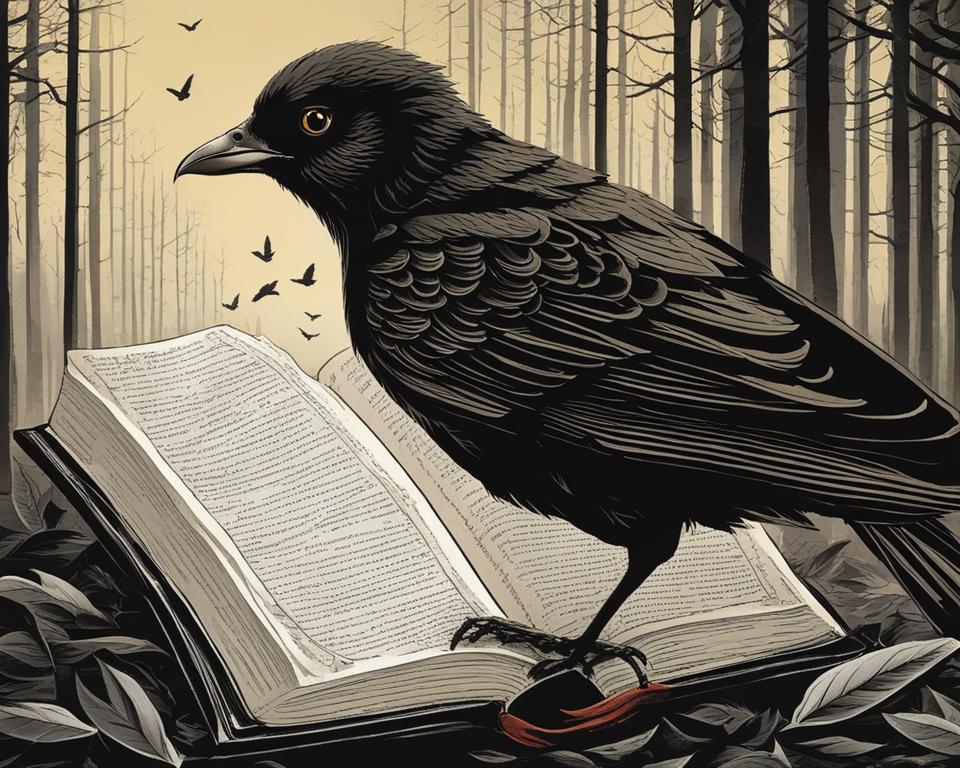If you’re on the hunt for a gripping and emotionally resonant audiobook, look no further than “The Book Thief” by Markus Zusak. This modern masterpiece tells the story of Liesel Meminger, a young girl living in Nazi Germany who finds solace in books and storytelling.
Zusak’s poignant and poetic writing style brings the characters and setting to life, while the audiobook narration by Allan Corduner adds another layer of depth and emotion to the tale.
In this review, we’ll explore the major themes of “The Book Thief,” analyze the characters and plot, discuss the impact of the book on literature and culture, and provide our overall recommendation.
Key Takeaways
- “The Book Thief” is a poignant and emotional audiobook that explores the power of storytelling and the resilience of the human spirit.
- Markus Zusak’s writing style and Allan Corduner’s narration combine to create a truly impactful listening experience.
- This review will examine the major themes and characters in “The Book Thief,” as well as its cultural and literary impact.
- Ultimately, we highly recommend “The Book Thief” audiobook to anyone looking for a powerful and moving story.
Summary of “The Book Thief”
Set in Nazi Germany during World War II, “The Book Thief” follows the life of a young girl named Liesel Meminger as she grows up during one of the darkest times in history. After her little brother dies and her mother is forced to abandon her, Liesel is taken in by a foster family, the Hubermanns, who live in a small town outside of Munich.
Despite the struggles and dangers that come with the war, Liesel finds solace and comfort in books, and soon becomes obsessed with stealing them whenever she can. As she grows older, she begins to understand the power of words and storytelling, using them to escape from the atrocities of the war and share her experiences with others.
The novel is narrated by Death, who has a unique perspective on the events of the story. The narrative weaves together the stories of Liesel, her family, and the people in her town, highlighting the impact that the war has on all of their lives. Throughout the book, Zusak explores themes of humanity, love, loss, and the resilience of the human spirit.
The Book Thief is a deeply moving and thought-provoking novel that has garnered critical acclaim since its release in 2005. The characters are complex and well-developed, and the story is both heartwarming and heart-wrenching. Zusak’s unique writing style, combined with the impactful narration in the audiobook version, make this a powerful and unforgettable read.
Author Background: Markus Zusak
Markus Zusak is an Australian author known for his vivid and imaginative storytelling style. Born in Sydney in 1975, Zusak began writing at an early age, with his first book, “The Underdog,” published when he was only 21. He has since gone on to become a renowned and award-winning author, with many of his works becoming international bestsellers.
One of Zusak’s most popular books is “The Book Thief,” which has sold millions of copies worldwide and has been translated into more than 40 languages. Zusak has also written several other acclaimed novels, including “I Am the Messenger,” “Fighting Ruben Wolfe,” “Bridge of Clay,” and “Getting the Girl.”
Zusak’s Writing Style
Zusak’s writing style is characterized by its poetic and descriptive nature. He uses vivid imagery and metaphors to create a compelling and immersive storytelling experience. His prose is often emotional and thought-provoking, exploring complex themes and ideas with sensitivity and depth. Zusak has also been praised for his ability to create unique and memorable characters, whose stories stay with readers long after the book is finished.
Previous Works
Zusak’s previous books have also garnered critical acclaim and commercial success. “I Am the Messenger,” for example, won the 2006 Michael L. Printz Honor and was shortlisted for the Australian Booksellers Association Book of the Year Award. “Fighting Ruben Wolfe” was selected as a Children’s Book Council of Australia Honour Book in 2001, while “Getting the Girl” was a CBCA Book of the Year for Older Readers in 2000.
Zusak’s impressive track record as an author highlights his talent and dedication to the craft of storytelling. His unique and imaginative approach to writing has won him a legion of fans around the world, and his works continue to captivate and inspire readers of all ages.
The Impact of “The Book Thief”
“The Book Thief” has had a profound impact on both the literary world and popular culture, cementing Markus Zusak’s reputation as one of the most talented authors of our time. The novel has received widespread critical acclaim for its unique narrative voice, compelling characters, and profound themes.
Since its publication in 2005, “The Book Thief” has sold millions of copies worldwide and has been translated into more than 40 languages. It has also garnered numerous literary awards, including the Michael L. Printz Honor and the Commonwealth Writers’ Prize.
In addition to its critical success, “The Book Thief” has achieved widespread popularity among readers of all ages and backgrounds. It has become a beloved classic, inspiring numerous adaptations, including a celebrated audiobook narrated by Allan Corduner.
Literary Impact
The literary impact of “The Book Thief” is undeniable. Zusak’s distinctive narrative voice, which is both witty and profound, has inspired countless authors and has become a hallmark of contemporary literature.
The novel’s exploration of powerful themes such as the power of storytelling, the resilience of the human spirit, and the importance of empathy has also resonated deeply with readers and critics alike. Its portrayal of Nazi Germany from the perspective of ordinary citizens has been lauded for its honesty and sensitivity.
Pop Culture Phenomenon
“The Book Thief” has also become a cultural phenomenon, inspiring numerous adaptations and influencing popular culture. The novel has been adapted into a successful film, a stage play, and an opera. It has also been referenced in popular television shows and songs, further cementing its place in the collective cultural consciousness.
Overall, “The Book Thief” continues to have a profound impact on readers and critics alike, cementing its place as one of the most important and beloved works of contemporary literature.
Themes in “The Book Thief”
One of the standout features of “The Book Thief” is the exploration of several major themes that resonate with readers long after finishing the book. One such theme is the power of storytelling. Through the character of Liesel, readers see the transformative effect that books and stories can have on a person, giving them a means of coping with tragedy and connecting with others. Another prominent theme is the resilience of the human spirit, as many characters in the book face extreme hardship and trauma, yet continue to find hope and love amidst the devastation.
Additionally, the theme of death is explored in an unconventional way in “The Book Thief,” as the book’s narrator is Death itself. This adds a unique perspective to the story, challenging readers to reflect on their own views of mortality and the meaning of life. Together, these themes weave a powerful and emotionally resonant tale that has captivated readers around the world.

Themes in “The Book Thief”
| Theme | Description |
|---|---|
| Power of Storytelling | The transformative effect that books and stories can have on a person, giving them a means of coping with tragedy and connecting with others. |
| Resilience of the Human Spirit | Many characters face extreme hardship and trauma, yet continue to find hope and love amidst the devastation. |
| Death | Explored in an unconventional way in “The Book Thief,” as the book’s narrator is Death itself, challenging readers to reflect on their own views of mortality and the meaning of life. |
Character Analysis
“The Book Thief” features a cast of memorable characters, each with their own motivations, strengths, and flaws. Let’s take a closer look at some of the most significant ones:
Liesel Meminger
As the title character, Liesel is at the heart of the story. The young girl is sent to live with foster parents in a German town during World War II, where she develops a love of books and storytelling. Liesel is a complex character, simultaneously brave and vulnerable, insightful and naive. Her journey throughout the book is one of growth and self-discovery, as she confronts the horrors of war and finds solace in literature.
Hans Hubermann
Liesel’s foster father, Hans, is a kind-hearted and gentle man who teaches her how to read. His love for Liesel is palpable, and he becomes a comforting presence in her life as she navigates the challenges of Nazi Germany. Hans is a talented accordion player and has a rebellious streak, which causes him to clash with some of his neighbors. His morality and empathy make him a standout character in the book.
Rudy Steiner
Rudy is Liesel’s best friend and neighbor. He is a mischievous and energetic boy who has a crush on Liesel. Rudy is a talented athlete and dreams of becoming a track star, but his aspirations are cut short by the war. He is a loyal and brave friend to Liesel, and their bond is a poignant highlight of the book.
These characters, among others, are what make “The Book Thief” such a captivating and emotional tale. Their relationships and struggles bring depth and meaning to the story, and their resilience in the face of adversity is inspiring. The book is a testament to the power of human connection and the enduring strength of the human spirit.
Writing Style and Narration
Markus Zusak’s writing style in “The Book Thief” is distinct and memorable. The story is narrated by Death, which adds a unique perspective to the events of the book. The language is poetic and filled with vivid imagery, creating a powerful emotional impact on the reader.
However, the audiobook version of “The Book Thief” takes things to the next level. Narrated by Allan Corduner, the audiobook captures the essence of Zusak’s writing style and elevates it even further. Corduner’s performance is masterful, bringing each character to life with distinct voices and emotional depth. The use of music and sound effects also adds to the immersive experience of listening to the audiobook.
Plot Analysis
As we delve deeper into “The Book Thief,” we uncover a meticulously crafted plot that keeps the reader engaged from beginning to end. The pacing of the story is well-balanced, with moments of tension and introspection that allow the reader to truly connect with the characters and their experiences.
One of the most impressive aspects of the plot is the use of plot twists that keep the reader on their toes and add an extra layer of complexity to the narrative. The most significant of these twists is the reveal of the narrator’s identity which adds another layer of poignancy to an already emotionally charged story.
The narrative arc of the story is structured around the themes of loss, love, and the power of storytelling. The progression of the story is seamlessly intertwined with the character development arcs, which creates a sense of synergy between the two and makes for a memorable reading experience.
Overall, the plot of “The Book Thief” is masterfully crafted and guaranteed to engross readers with its compelling characters, intricate plot twists, and deeply affecting themes.
Emotional Impact and Themes
“The Book Thief” is a deeply moving and poignant novel that resonates with readers on many levels. The emotional impact of this book is undeniable, as it explores themes of loss, love, and the cruel realities of war. Through the eyes of its young protagonist, Liesel, we see the devastating effects of poverty, prejudice, and persecution on ordinary people.
The power of storytelling is a recurring theme in “The Book Thief”, emphasizing the human capacity for empathy and compassion. Through the characters’ experiences and struggles, readers are reminded of the importance of connection and understanding in a world that often seems dark and despairing.
The themes of resilience and hope are also significant in “The Book Thief.” Despite the horrors they face, Liesel and the other characters find strength in their relationships with each other and the stories they share. This message of perseverance in the face of adversity is both inspiring and uplifting.

Comparison to the Movie Adaptation
While the audiobook version of “The Book Thief” offers an immersive and emotional experience that brings the novel to life, the movie adaptation takes a different approach to storytelling.
Directed by Brian Percival and starring Sophie Nélisse, Geoffrey Rush, and Emily Watson, the movie portrays the events of the novel in a visually stunning and poignant way. However, to fit the story into a coherent two-hour format, some elements of the novel had to be compressed or left out entirely.
One major difference between the two versions is the portrayal of Death as a narrator. While the audiobook uses Death’s voice to weave the story together, the movie relies on more traditional narrative techniques. Additionally, some of the more subtle themes and character nuances present in the novel are not as pronounced in the movie.
Despite these differences, the movie adaptation remains a powerful and moving portrayal of the themes and characters from “The Book Thief.” For fans of the novel, seeing the story and characters come to life on screen can be a rewarding experience, even if some elements are necessarily different or omitted.
Critical Analysis and Reviews
Since its publication in 2005, “The Book Thief” has received widespread critical acclaim, earning a place on the New York Times bestseller list and a host of literary awards. Critic Mark Brown from The Guardian described the novel as “original and daring” while The Independent noted Zusak’s “assured control of language.”
However, there have also been some criticisms of the book’s narrative structure and characterization. Critic Michael Upchurch from The Seattle Times found the story to be “told in a disjointed and gimmicky style,” while The New York Times’ reviewer expressed disappointment in the “paper-thin characters.”
Despite these critiques, “The Book Thief” continues to resonate with readers of all ages and backgrounds. Its themes of love, loss, and the power of words have captivated audiences around the world, cementing its status as a modern classic.
User Reviews
| User | Rating (out of 5) | Comment |
|---|---|---|
| Emily M. | 5 | “The Book Thief” is one of the most moving books I’ve ever read. Zusak’s writing style is utterly unique and the story had me in tears by the end. Highly recommend it!” |
| John R. | 3 | “While I appreciated the novel’s message, I found the narrative structure to be frustrating and at times confusing. Still, worth a read for the beautiful prose.” |
| Samantha L. | 4 | “I picked up “The Book Thief” without knowing much about it and I was blown away. The characters are so real and human and the storytelling is unparalleled. I just wish it had ended differently.” |
As the user reviews demonstrate, “The Book Thief” has the power to move and inspire readers – even those who may have found fault with its structure or characters. Overall, it remains a powerful and poignant examination of the human experience, one that is highly recommended for readers of all tastes and interests.
Recommendation and Conclusion
After a thorough review, “The Book Thief” audiobook by Markus Zusak comes highly recommended. The poignant narrative and powerful themes make it a memorable listening experience that is suitable for any reader.
In conclusion, “The Book Thief” is an emotionally rich and thought-provoking novel that explores the resilience of the human spirit and the power of storytelling. Zusak’s unique writing style and the excellent narration of the audiobook make it a must-listen for book lovers and audiobook enthusiasts alike. Whether you’re a fan of historical fiction or simply enjoy a beautifully crafted story, you won’t want to miss experiencing “The Book Thief.”
Key Points:
- Emotionally resonant and thought-provoking
- Powerful themes exploring human resilience and storytelling
- Zusak’s unique writing style
- Excellent narration on the audiobook version
- Highly recommended for any reader
About the Author and How to Get the Audiobook
Markus Zusak is an Australian author known for his unique writing style and powerful storytelling. Born in 1975, he has written several critically acclaimed novels, including “The Messenger” and “Bridge of Clay.”
To experience “The Book Thief” in audiobook form, there are several options available. It can be purchased on popular audiobook platforms like Audible, Google Play Books, and Apple Books. Additionally, many public libraries offer free access to digital audiobooks through apps like Overdrive and Libby.
Whichever method you choose, experiencing “The Book Thief” through an audiobook is a truly immersive and emotional journey. Don’t miss out on this unforgettable tale.
FAQ
What is “The Book Thief” by Markus Zusak?
“The Book Thief” is a novel written by Markus Zusak. It is a captivating story set during World War II and narrated by Death. The book follows the journey of Liesel Meminger, a young girl living in Nazi Germany, as she discovers the power of words and storytelling amidst the chaos of war.
What is the summary of “The Book Thief”?
“The Book Thief” tells the story of Liesel Meminger, a young girl sent to live with a foster family in Nazi Germany. With the help of her foster father, Liesel learns to read and becomes captivated by the power of words. She begins stealing books and sharing them with her neighbors and the Jewish man hiding in her basement. The book explores themes of love, friendship, and the resilience of the human spirit in the face of adversity.
Who is Markus Zusak?
Markus Zusak is an Australian author known for his critically acclaimed novels. He is particularly renowned for his unique writing style and his ability to explore complex themes through compelling storytelling. Some of his other notable works include “The Messenger” and “I Am the Messenger.”
What impact did “The Book Thief” have?
“The Book Thief” had a significant cultural and literary impact. It has received widespread critical acclaim and has been translated into multiple languages. The book has won numerous awards, including the Michael L. Printz Honor for Excellence in Young Adult Literature. It continues to resonate with readers globally, touching hearts with its poignant and thought-provoking narrative.
What are the major themes in “The Book Thief”?
“The Book Thief” explores several compelling themes, including the power of words and storytelling, the resilience of the human spirit, and the impact of kindness and compassion in the face of darkness. The book also delves into the effects of war and the importance of friendship and love in times of adversity.
Can you provide a character analysis of the main characters in “The Book Thief”?
Certainly! “The Book Thief” features a rich cast of characters, including Liesel Meminger, Hans Hubermann, Rosa Hubermann, and Max Vandenburg. Liesel, the protagonist, undergoes a profound transformation throughout the story, as she discovers the power of words and navigates the complexities of Nazi Germany. Each character brings a unique perspective and plays a crucial role in shaping the narrative.
How would you describe Markus Zusak’s writing style and the narration in the audiobook?
Markus Zusak’s writing style is often described as lyrical and poetic. He masterfully weaves together vivid imagery and evocative language to create a rich and immersive reading experience. In the audiobook version of “The Book Thief,” the narration by Allan Corduner adds another layer of depth to the storytelling, enhancing the emotional impact of the narrative.
Can you analyze the plot structure of “The Book Thief”?
Absolutely! “The Book Thief” features a well-crafted plot structure that keeps readers engaged from beginning to end. The story unfolds in a non-linear fashion, with Death serving as the narrator, providing insights and foreshadowing events to come. The plot is filled with twists and turns, creating suspense and emotional resonance as Liesel’s journey unfolds.
How does “The Book Thief” emotionally impact readers?
“The Book Thief” has a profound emotional impact on readers, evoking a range of emotions from joy and love to sadness and grief. The story’s exploration of themes such as loss, resilience, and the power of words strikes a chord with readers, leaving a lasting impression and often provoking deep reflection.
How does the movie adaptation of “The Book Thief” compare to the audiobook version?
The movie adaptation of “The Book Thief” captures the essence of the story, but it is important to note that it may differ from the audiobook version in certain aspects. While both formats offer their own unique experiences, the audiobook allows listeners to immerse themselves in the narrative through the power of Zusak’s storytelling and Allan Corduner’s captivating narration.
What are some critical analysis and reviews of “The Book Thief”?
“The Book Thief” has received widespread critical acclaim, with many praising Markus Zusak’s storytelling abilities and the book’s emotional depth. Critics have lauded its exploration of universal themes and its unique perspective on Nazi Germany. However, there are also varying opinions, with some highlighting pacing concerns or questioning certain narrative choices. Exploring these reviews can offer different perspectives and interpretations of the book.
Would you recommend “The Book Thief” audiobook?
Absolutely! “The Book Thief” audiobook is a captivating and immersive experience. The combination of Markus Zusak’s powerful storytelling and Allan Corduner’s exceptional narration brings the characters and the story to life, making it a highly recommended choice for audiobook enthusiasts and fans of historical fiction.
Where can I find more information about Markus Zusak and how to get the audiobook?
To learn more about Markus Zusak and his other works, you can visit his official website or check out reputable book review sites. To purchase or access the audiobook version of “The Book Thief,” you can visit online retailers such as Amazon or Audible, or check with your local library for availability.



